No products in the cart.
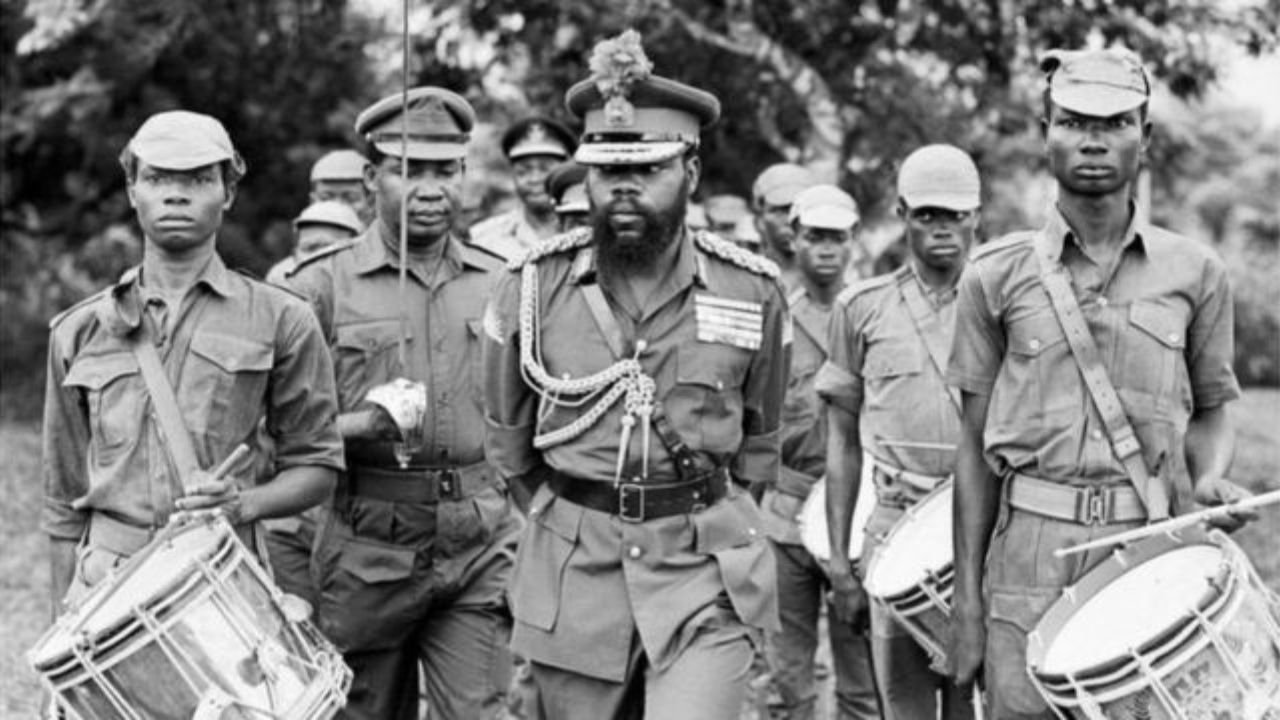
The Nigerian Civil War, also known as the Nigeria-Biafra War or the Biafran War, was a needless conflict that lasted 30 months, from July 6, 1967, to January 15, 1970. The first shot was fired in present-day Cross River State around 5:00 a.m. on July 6, 1967. The Head of State, Lieutenant-Colonel Yakubu Gowon had described the intervention as a “police action” a euphemism for war.
A year later, Gowon boasted that the war would end in four to eight weeks. However, it dragged on for another 68 weeks with thousands of deaths on both sides, over a million displaced and properties worth millions of pounds lost.
Although Gowon described the aftermath of the Nigerian Civil War as a “no victor, no vanquished” conflict in his speech in January 1970, the circumstances that led to the war are still visible even after 55 years.
Contents
Background
The effects of the Nigerian Civil War are still being felt even among the generations that came way after the last shot was fired in January 1970. The war did not happen overnight, but certain events led to it. Understanding the root causes of these events will help proffer a credible solution to the crisis bedevilling Nigeria.
Firstly, the amalgamation of the Southern and Northern Provinces of Nigeria to make up the Federation of Nigeria by the British on January 1, 1914, was the genesis of a turbulent history of the West African nation. The merging of different tribes and tongues with diverse cultural and historical backgrounds as one nation would give rise to nepotism, tribalism and other numerous vices that led to the first military coup and the Fall of the First Republic on January 15, 1966.
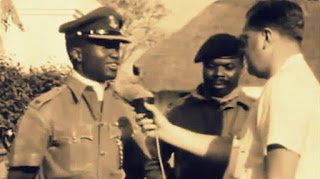
Due to the sectional killings of the First Republic politicians and some senior military officers from the Northern and Western Regions by some young army majors who were mainly from the Eastern Region, there was a polarity within the Nigerian Army and distrust among the rank and file in various military barracks.
The highest-ranking officer in the army, Major-General Johnson Thomas Aguiyi-Ironsi then took power as Nigeria’s first military Head of State and suspended the constitution bringing an end to the First Republic. It did not help matters as the new head of state happened to be from the same Eastern Region the leader of the coup came from.
Yet, the General’s failure to try the coup plotters and punish them led to another coup just six months later with the death of the Head of State. Three days later, he was succeeded by his Chief of Staff, Army, Lieutenant-Colonel Yakubu Gowon. This was quickly followed up with the massacre and killings of the Easterners, especially those residing in the North.

However, the military governor in the East, Emeka Ojukwu would not recognise Gowon’s leadership and after some back-and-forth meetings on the future of Nigeria, Ghana’s Head of State, Lieutenant-General Joseph Arthur Ankrah called for a peace meeting in Aburi, Ghana.
The Aburi Meeting
The Aburi meeting started on January 4, 1967, and lasted two days. Aburi was as much a battle of intellect and strategy as it was a diplomatic negotiation. Ojukwu entered the talks with a meticulously crafted strategy to secure his region’s interests.
While Gowon attended the meeting without adequate preparations in terms of a crew of legal and political advisers which such a meeting demanded, Ojukwu, on the other hand, meant business. He arrived in Aburi with a strong team of legal, political, and economic advisers, secretaries, and realms of paper.
The agreements reached at Aburi reflected many of Ojukwu’s demands. The accord recognised the principle of regional autonomy and proposed a framework that would grant significant powers to Nigeria’s regions. For Ojukwu, this was a major tactical victory, as it provided a legal and moral basis for the Eastern Region’s push for autonomy.
However, Gowon reneged on the Aburi accord when he returned to Lagos and this caused a major disagreement between the federal government and the Eastern Region.
Nothing significantly happened for the next 60 days until May 27, 1967, when Gowon created 12 new states from Nigeria’s four regions while cutting Ojukwu’s access to the sea and the oil wealth of the Eastern Region by creating East-Central State, Rivers State and South-Eastern State with capitals in Enugu, Port-Harcourt, and Calabar respectively.
Three days later, on May 30, 1967, Ojukwu announced the creation of the Republic of Biafra. On July 6, 1967, Gowon announced a police action that would lead to a brutal civil war for 30 months until Ojukwu fled the country for the Ivory Coast on January 10, 1970.
Five days later, on January 15, 1970, Ojukwu’s deputy, Major-General Philip Effiong announced the surrender and cessation of Biafra and the Civil War ended.
Remembering the Nigerian Civil War After 55 Years: Reflections, Lessons, and the Way Forward
Fifty-five years later, the scars of the Nigerian Civil War still linger in the national psyche, influencing political discourses, social interactions, and national cohesion. As we reflect on this tragic period, it is imperative to explore what could have prevented the war, the lessons learned, and the strategies for forging a more unified and peaceful Nigeria.
What Could Have Prevented the Nigerian Civil War?
Several factors contributed to the outbreak of the Nigerian Civil War. Addressing these factors early in Nigeria’s post-independence era could have averted the devastating conflict.
Nigeria gained independence in 1960 with immense promise. However, the absence of visionary leadership capable of fostering a sense of national unity among the various ethnic groups laid the foundation for discord. Leaders focused on regional and ethnic interests rather than national development. A concerted effort to promote inclusive governance and national integration could have mitigated the ethnic tensions that culminated in the war.
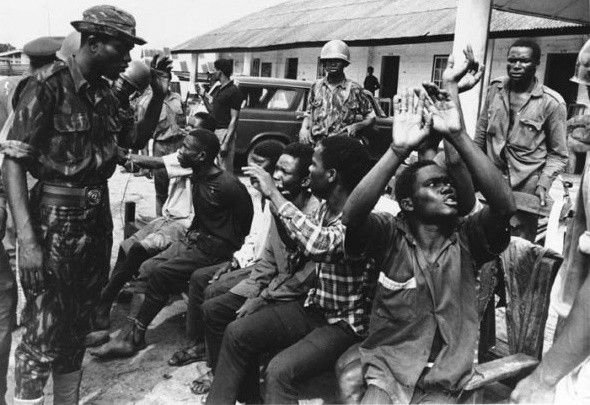
The 1966 military coups undermined Nigeria’s federal structure, leading to heightened regional tensions. A decentralised approach to governance, where regions enjoyed significant autonomy while remaining part of a united Nigeria, could have created a more stable political environment.
The Aburi Accord, an agreement reached in Ghana in 1967, sought to resolve the brewing crisis. However, the failure to implement the accord highlighted the lack of effective mechanisms for resolving political disputes. A commitment to dialogue and compromise at critical junctures could have forestalled the descent into the Nigerian Civil War.
Lessons Learned from the Nigerian Civil War
The Nigerian Civil War was a tragic episode that resulted in immense human suffering, with an estimated one to three million lives lost, primarily from starvation. While the war ended over five decades ago, it offers timeless lessons. The war underscored the fragility of Nigeria’s unity, emphasising the importance of nurturing national cohesion. Ethnic and regional divides remain potent forces that can threaten national stability if not addressed.
Marginalising any group—whether based on ethnicity, religion, or geography—can have dire consequences. Inclusive policies that give every Nigerian a sense of belonging are essential for sustainable peace and development.
The inability to sustain dialogue and implement agreements such as the Aburi Accord played a significant role in the war’s outbreak. Nigeria’s experience demonstrates the importance of dialogue, negotiation, and compromise in resolving disputes.
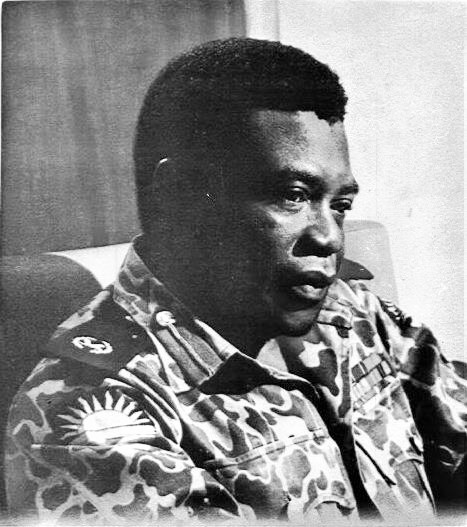
Leadership matters. The actions and inactions of political and military leaders during the pre-war period exacerbated tensions. Leaders must prioritise the collective good over sectional interests to prevent history from repeating itself.
The Way Forward for Nigeria
As Nigeria marks 55 years since the end of the civil war, it is an opportune moment to chart a course toward a more united, prosperous, and peaceful future. Fostering a strong sense of national identity is paramount. This requires deliberate efforts to celebrate Nigeria’s diversity while emphasizing shared values and aspirations. Schools, media, and cultural initiatives should play a role in promoting unity.
A truly federal system that grants significant autonomy to states or regions could help address longstanding grievances about resource control and governance. Decentralisation can empower local governments to address their unique challenges while reducing dependence on the central government.
Strong institutions are the bedrock of stable nations. Nigeria must invest in building institutions that are impartial, transparent, and accountable. From the judiciary to anti-corruption agencies, strengthening these entities will enhance trust in governance.
Economic disparities remain a major source of tension. Policies that promote equitable development, create jobs, and reduce poverty are essential. Investing in infrastructure, education, and healthcare will improve living standards and foster national unity. With a predominantly youthful population, Nigeria’s future depends on its young people. Providing them with quality education, job opportunities, and platforms for civic engagement will harness their energy for nation-building rather than conflict.
Nigeria continues to grapple with various forms of insecurity, from insurgencies to banditry. Strengthening security forces, enhancing intelligence capabilities, and addressing the root causes of insecurity—such as poverty and unemployment—are critical.
Transparent, accountable, and inclusive governance is the foundation of national stability. Leaders must demonstrate a commitment to serving all Nigerians, regardless of ethnic or regional affiliations. Genuine reconciliation involves acknowledging past injustices and addressing them. Initiatives such as truth and reconciliation commissions or national dialogues can help heal wounds and build trust among Nigeria’s diverse communities.
Conclusion
The Nigerian Civil War remains a sobering reminder of the consequences of division, mistrust, and poor governance. Fifty-five years later, the lessons of the war are as relevant as ever. Preventing a recurrence requires deliberate efforts to foster unity, promote inclusivity, and address the root causes of conflict.
A peaceful Nigeria is a peaceful Africa. As Nigeria looks to the future, it must embrace its diversity as a strength rather than a weakness. By learning from the past and implementing forward-thinking policies, Nigeria can overcome its challenges and achieve its immense potential as a beacon of unity and progress in Africa.
Your support can make a world of difference in helping us continue to bring Nigeria’s rich history to life! By donating to HistoryVille, you’re directly contributing to the research, production, and storytelling that uncover the incredible stories of our past. Every donation fuels our mission to educate, inspire, and preserve our heritage for generations to come.
Additionally, if you’re a business or brand, running adverts with us is a powerful way to reach an engaged audience passionate about history and culture while supporting content that matters.
Please stay connected with us through our social media handles and make sure you are subscribed to our YouTube Channel. Together, let’s keep the stories of Nigeria’s past alive.


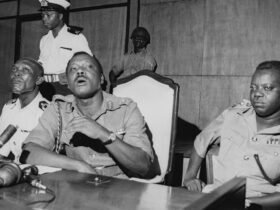




Leave a Reply
View Comments